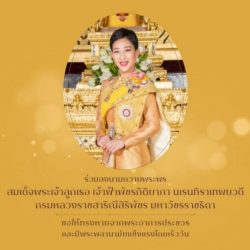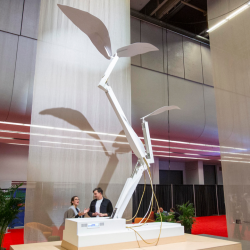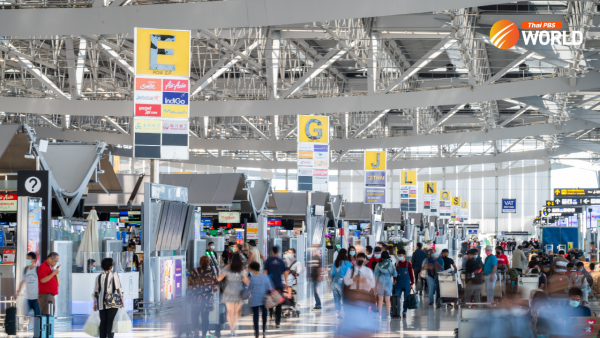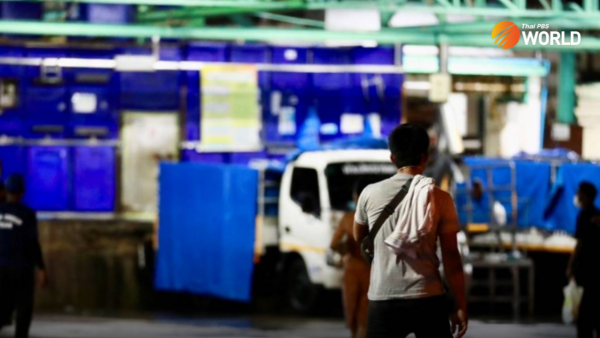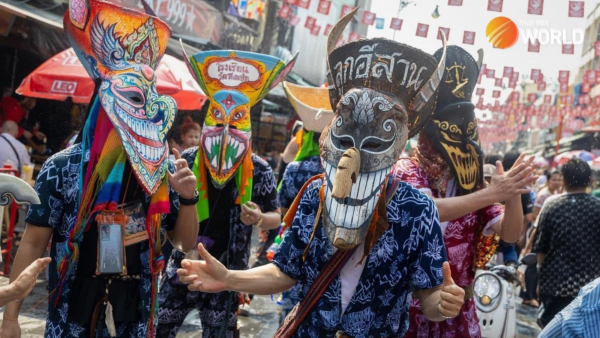2022 ushered in a new dawn in Thai-Saudi relations
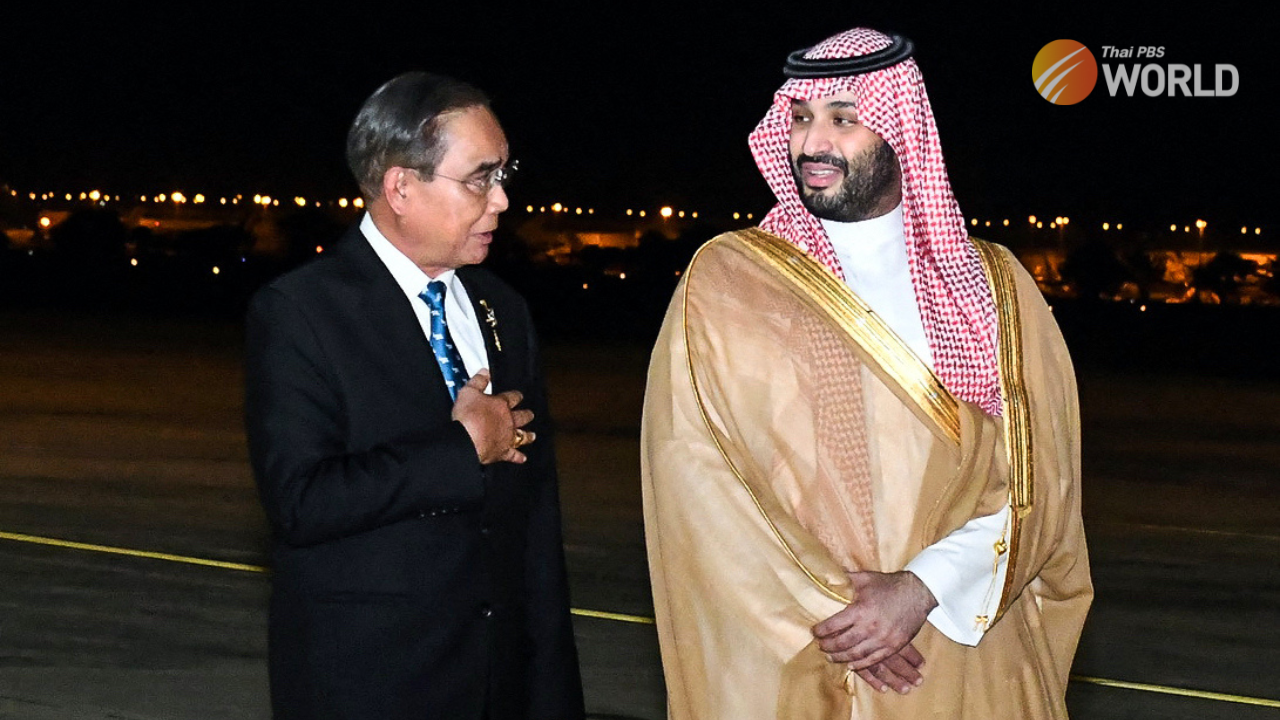
One of the biggest foreign policy successes of the year for Thailand was the normalization of relations with Saudi Arabia, ending three decades of coldness.
The new bonhomie was marked by the visit to Thailand of Saudi Crown Prince and Prime Minister Mohammed bin Salman Al Saud (MBS) during the Asia Pacific Economic Cooperation Summit in November. The two sides signed five pacts to promote cooperation in various fields during MBS’ visit.
The two countries began the normalization of bilateral ties this year when Prime Minister Prayut Chan-o-cha made a ground-breaking trip to Riyadh on January 25-26, the highest-level visit by either side.
Relations soured in 1989 following a jewellery heist by a Thai worker from Riyadh Palace and the subsequent murder of Saudi diplomats in Bangkok.
While the criminal cases were partly solved, many cases became controversial due to corruption and abuse of power in the Thai judicial system, as a result Riyadh was never convinced justice had been done. Relations between the two countries went into cold storage.
A leadership change in Saudi Arabia, which resulted in MBS taking the reins of power, has contributed greatly towards the normalization. The Saudi crown prince may have become a controversial figure on the global stage, but he has taken several bold steps towards not only reforming his country but also ending friction with many countries in the Middle East and Asia.
Prime Minister Prayut offered an official apology for the tragedies over the past 32 years during his visit. He said that Riyadh had agreed to begin a new chapter in bilateral relations for mutual benefit in nine sectors: tourism, energy, labor, food, health, security, religion, trade-investment and sport.
Deputy Prime Minister and Foreign Minister Don Pramudwinai added momentum by leading a 100-strong delegation, which included representatives of the private sector, to Riyadh for a follow-up visit on May 15-19. The ministry was in the process of establishing a joint commission with its Saudi counterpart to forge bilateral cooperation.
The Thai Cabinet endorsed in June the appointment of Darm Boontham as Thailand’s first ambassador to Saudi Arabia in three decades. The ambassador presented his letter of credence on November 2 to start his mission of rebuilding the relationship.
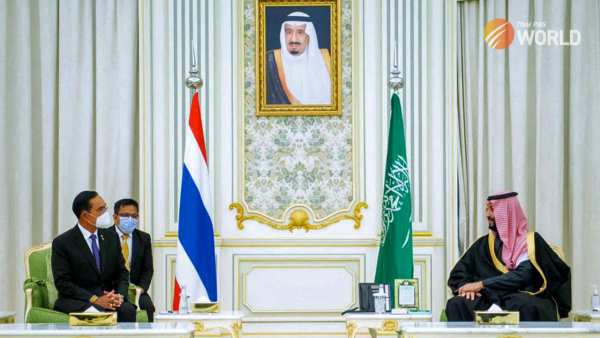
Changing times
It does seem that the Prayut government might have misestimated the benefit of the revival of bilateral relations with Saudi Arabia in the context of labor opportunities for Thais. Saudi Arabia was a major labor market for Thais, offering jobs to 200,000-300,000 people 32 years ago. The Labor Ministry signed two memorandums of understanding with its Saudi counterparts in March on export of Thai labor to the Gulf state.
However, the opportunities offered have not been up to expectations. Labor Minister Suchart Chomklin said in June that only 309 positions for skilled labor and professional healthcare workers were available in Saudi Arabia. The Department of Employment announced again in July that more than 2,000 positions for housemaids and professional nurses were available in Saudi Arabia, but less than 100 Thais reportedly applied for the jobs. Many of them told local media that other places like Japan can offer them higher incomes for the same jobs.
Experts said labor markets have changed dramatically over the past three decades. There is no more labor-intensive work in Saudi Arabia as it has built enough infrastructure and facilities. Meanwhile workers from other countries, such as the Philippines, have already taken the jobs that could have gone to Thais during the period of diplomatic estrangement.
It must be noted that Thailand’s labor supply has been stable with an average workforce of 38 million per annum over the past decade. The Thai economy is even absorbing a few million workers from neighboring countries, such as Cambodia, Laos and Myanmar. A new generation of Thai workers are able to look for jobs around the world that can offer them more income and better welfare. Saudi Arabia or other countries in the Middle East are no longer attractive as work destinations.
Potential for trade and investment
Saudi Prime Minister Mohammed bin Salman was invited to Thailand as a special guest to the Asia Pacific Economic Cooperation Summit by the host nation in November. Five pacts were signed to boost cooperation for mutual benefit. The pacts included an action plan to enhance bilateral ties (2022-2024); energy cooperation; sport and tourism cooperation; the establishment of a Thai-Saudi cooperation council; and a memorandum of understanding to promote direct investment.
The Foreign Ministry and the private sector under the Joint Standing Committee on Commerce, Industry and Banking jointly hosted the Thai-Saudi Investment Forum on November 7 in Bangkok to promote investment and business matching. The organizers were expecting the forum to boost bilateral trade by an additional US$800 million (28 billion baht) and draw more than US$10 billion (351.2 billion baht) in new investments this year.
A Cabinet resolution in June allowed Saudi visitors to stay in Thailand for 30 days without a visa to enhance tourism. With the measure, the government expected the number of visitors from the Arab country to increase from 30,000 previously to 100,000-150,000 annually, generating revenue of more than 5 billion baht a year.
Thailand wants to utilize MBS’ “Saudi Vision 2030” to promote the Bio-Circular-Green economy model and draw investment in the Eastern Economic Corridor focusing on digital, innovation, health-tourism, medical, food processing, clean energy and electric vehicles. Government spokesman Anucha Burapachaisri said Saudi investors planned to pour in as much as 300 billion baht in investments in Thailand next year.
Two-way trade between Thailand and Saudi Arabia in the first nine months of this year reached 265.29 billion baht, rising 65.54 per cent year on year. Thai exports to Saudi Arabia were valued at 49.19 billion baht, increasing 29.83 per cent from last year, while Thailand’s imports — mostly crude oil, fertilizer and chemical items — were worth 216 billion baht, up 76.57 per cent from the same period of last year.
Most of the revenue, however, went to the big conglomerates, such as CP Food. Six out of 11 factories in Thailand granted permission by Saudi authorities to export frozen chicken to Saudi Arabia belong to CP Food. The company expects to export 6,000 tons of halal chicken to the country this year and reach 60,000 tons in the next five years.
PTT was allowed to open its first petrol station outlet and Amazon Coffee in Riyadh in August and it expects to have 150 outlets in 10 years.
Thai Airways International launched its first flight from Bangkok to Jeddah on August 19. The national flag carrier has operated four flights a week between the two cities since then, according to the company statement.
By Thai PBS World’s Regional Desk

